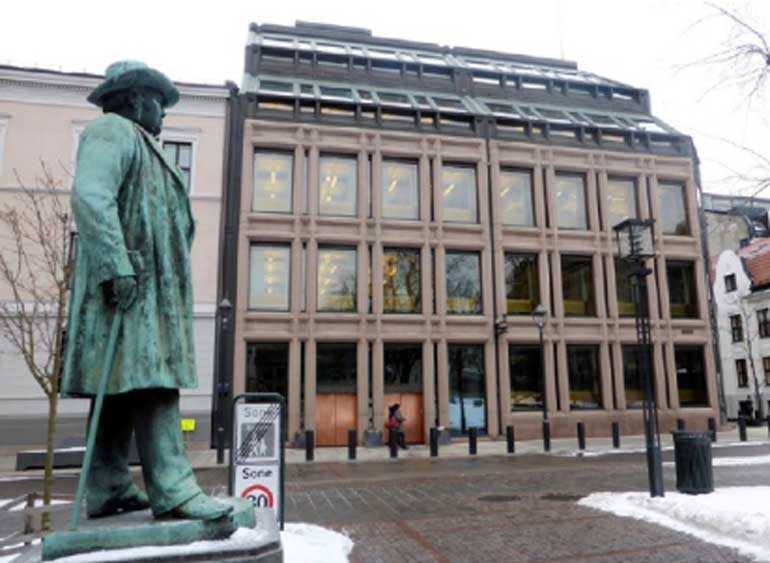Saturday Feb 21, 2026
Saturday Feb 21, 2026
Saturday, 6 June 2020 00:00 - - {{hitsCtrl.values.hits}}

A general view of the Norwegian central bank in Oslo - File photo
OSLO (Reuters) - Norway’s economy will recover more quickly than expected from the coronavirus-induced recession as the country got on top of the outbreak early and is now rapidly opening up, Statistics Norway (SSB) said on Friday.
Output contracted by 11.4% in the two months since the end of February but the outlook for the rest of the year now looks better than it did six weeks ago, SSB said.
Among the first in Europe to close down society to combat the pandemic, Norway on March 12 shut schools, kindergartens and a wide range of private services such as hair salons and restaurants, and asked those who could to work from home.
By 24 March Norway ranked second in Europe in per capita testing for the virus, according to the Our World in Data database, and in April the government said the disease was “under control” and most restrictions would be lifted over a two-month period.
Norway will continue to rely on social distancing rules to prevent a resurgence in infections.
“The infection rate has been reduced faster than expected, the infection prevention measures have been eased to a greater extent and the scope of the financial packages has increased more,” SSB said.
The mainland economy, which excludes Norway’s large but volatile oil sector, is forecast to shrink by 3.9% this year versus a fall of 5.5% predicted on 24 April when the country was in lockdown.
“We expect growth to pick up sharply again towards the end of the year and early 2021,” SSB said. It expects the economy to grow by 4.3% in 2021.
The unemployment rate, which rose above 15% in the first week of April, has also begun to decline with SSB forecasting it to average 5.1% in 2020, lower than predicted six weeks ago.
The central bank cut its key policy interest rate to a record-low zero percent to support the economy through the crisis and is likely to maintain that level until 2022, while the government announced record fiscal spending.
Households have also kept up spending, and housing prices rose in May.
“There is good reason to expect that April will mark the low point for the mainland economy during the corona crisis,” Handelsbanken wrote in a note to clients.